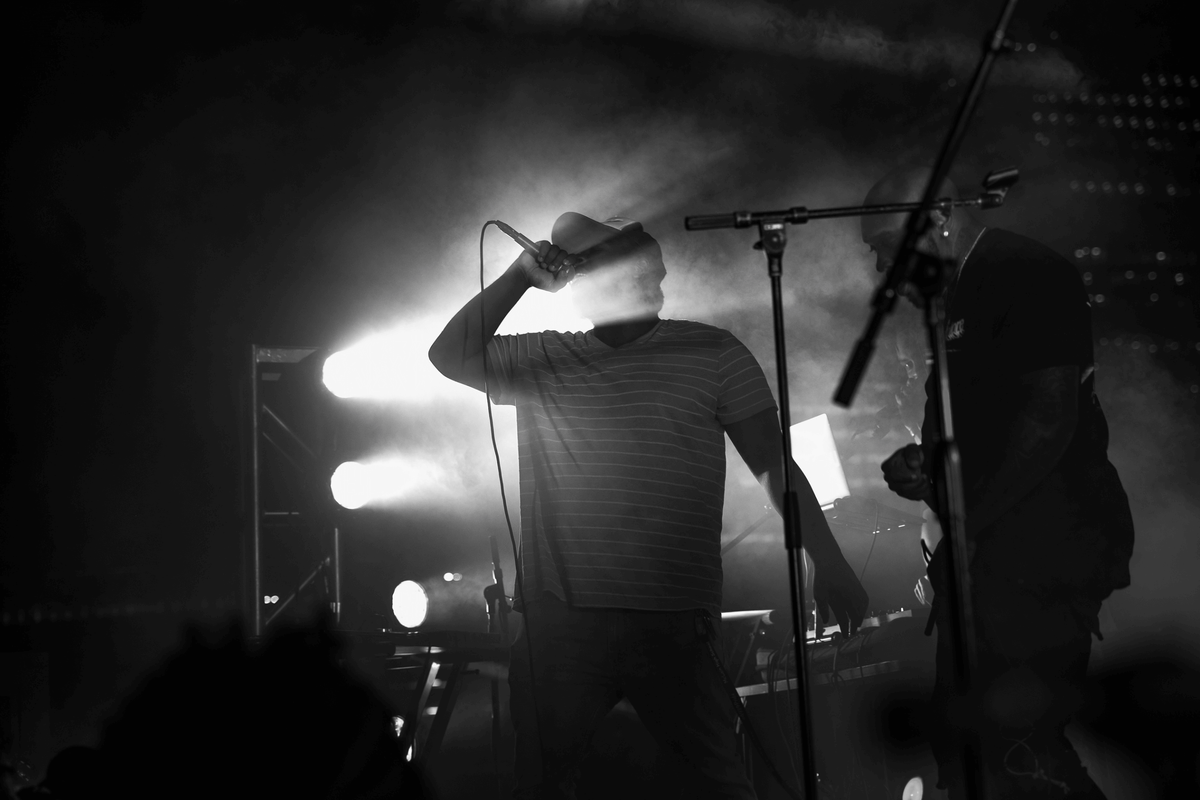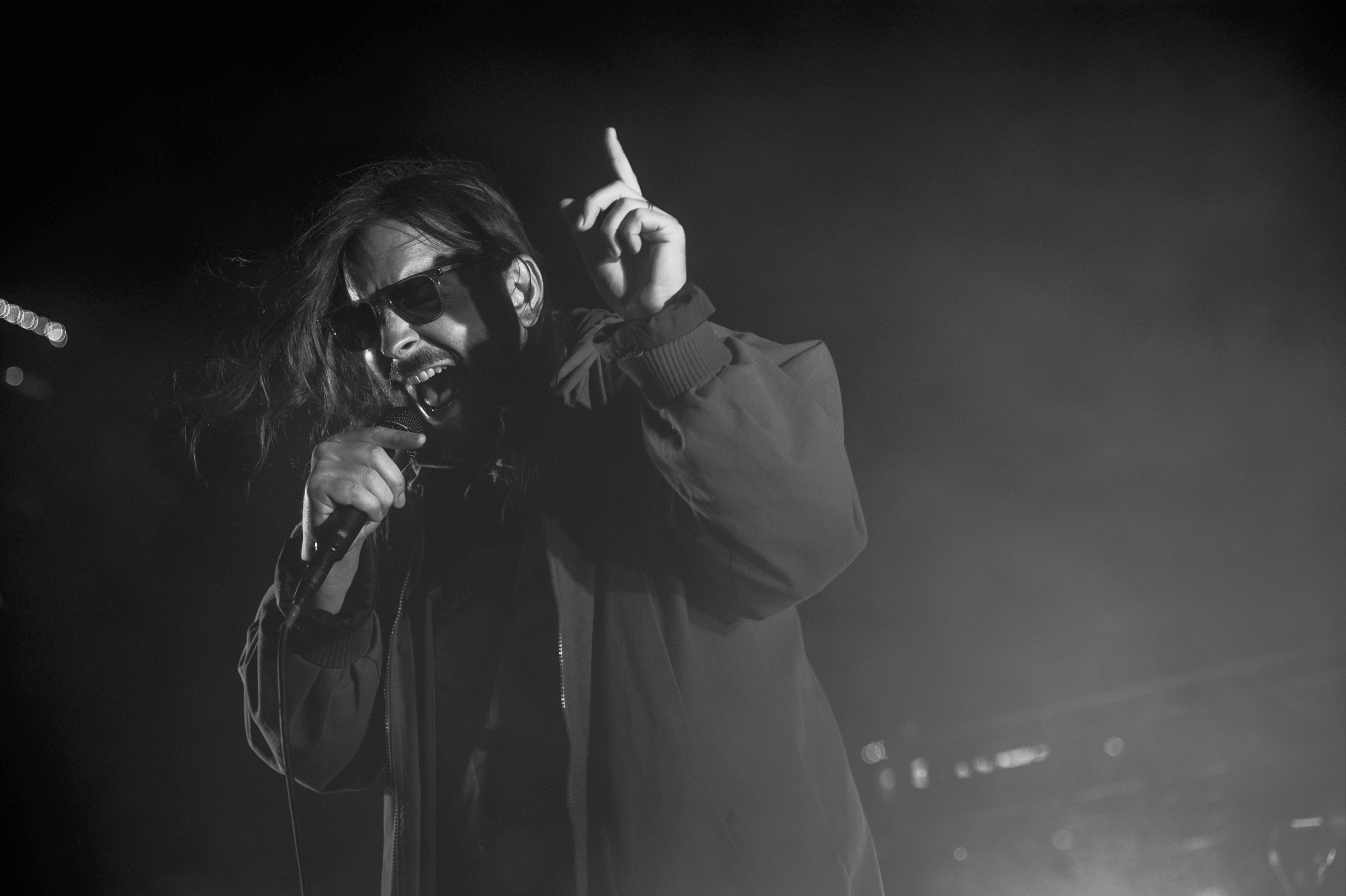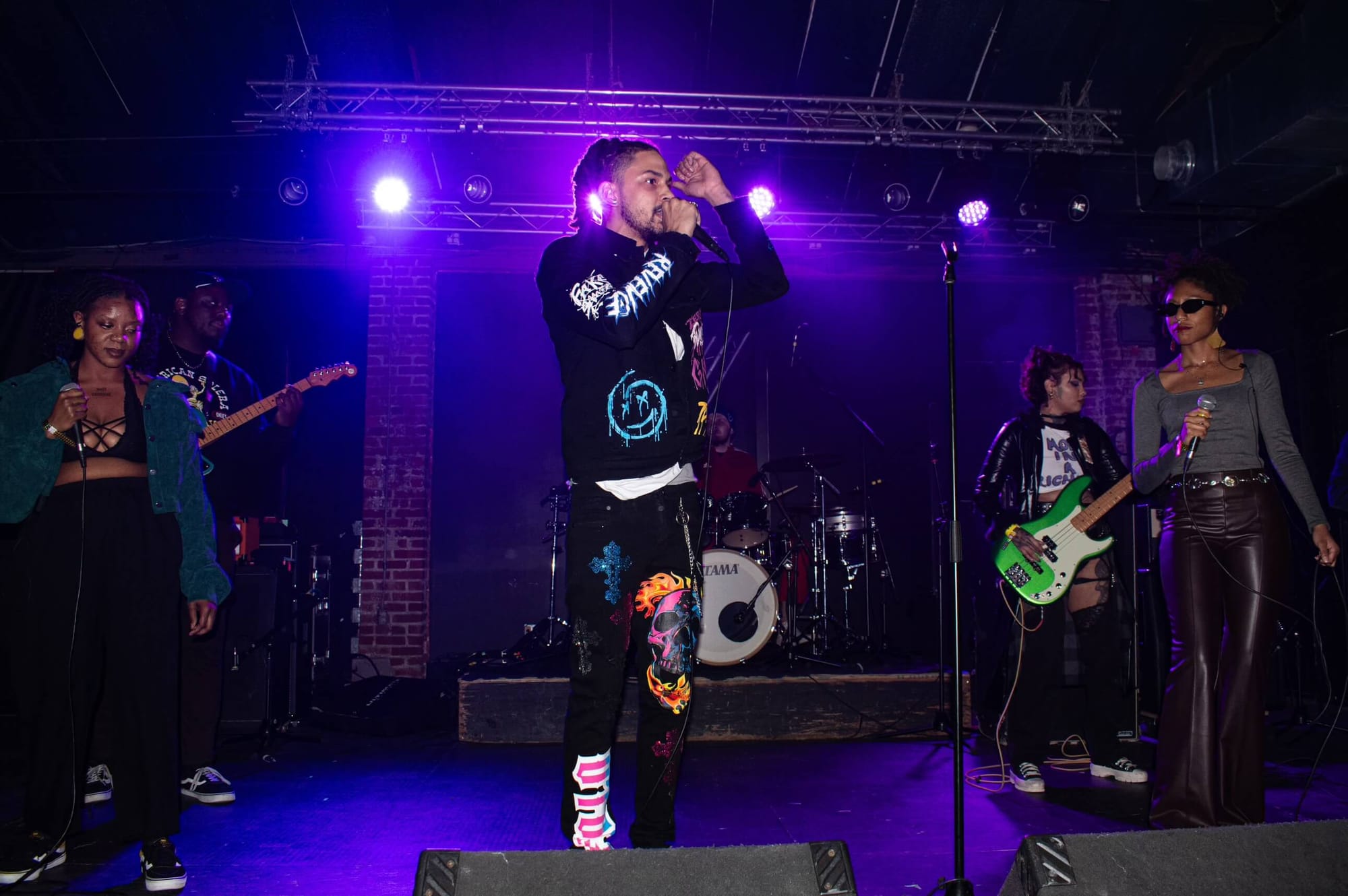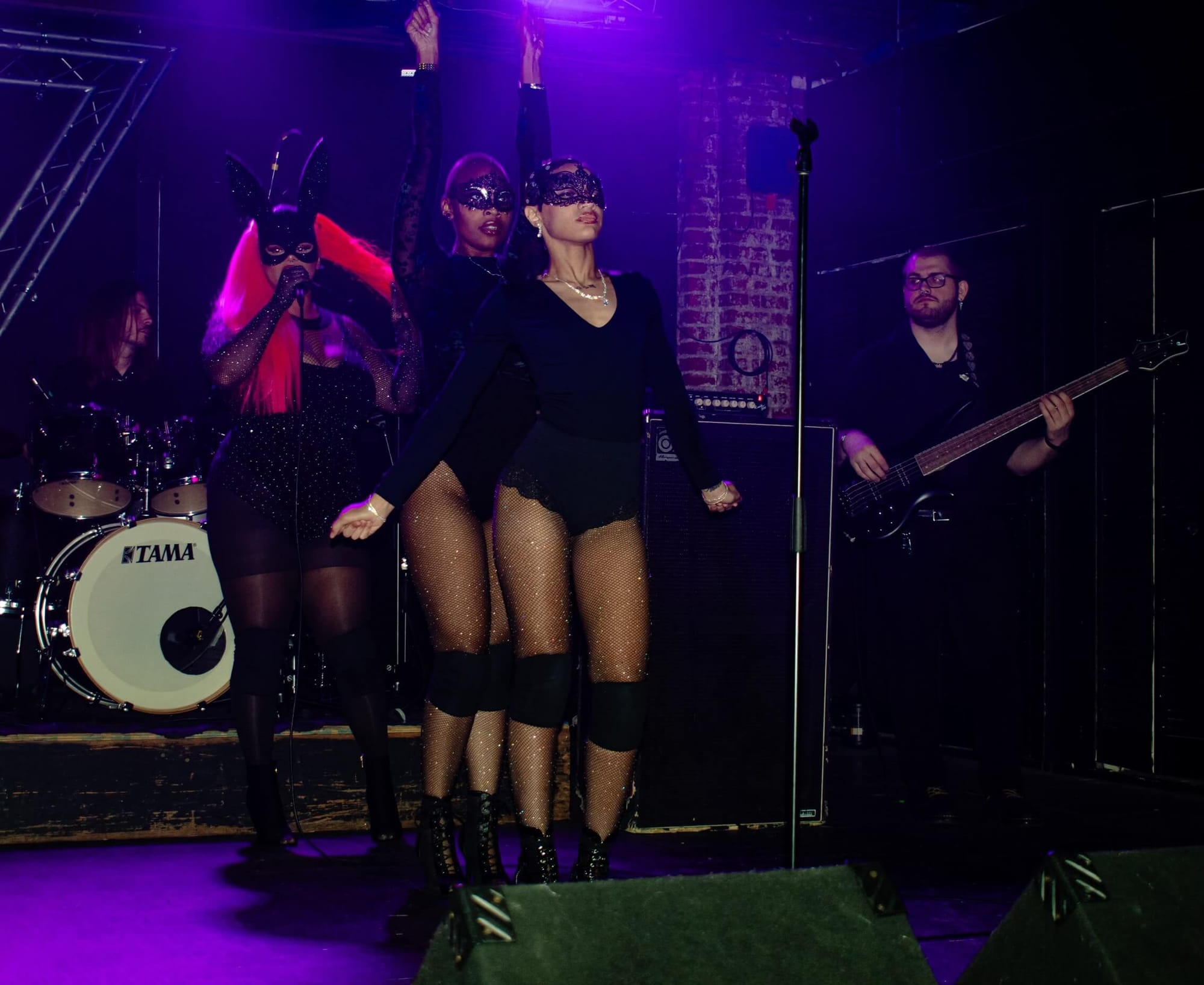
When Steph Simon thinks about it today, it still feels surreal.
The moment came in 2017, when Simon was following his daily routine of hopping on the metro bus in Tulsa before attempting to zone out to his music while he rode to his job at a DirecTV call center. It was a normal start to what he envisioned would be a normal, mundane workday.
That is, until Simon noticed something was different.
“I was on the front page (of the newspaper), me and my best friend Keenan Lane, we were on the front page of the paper,” says Simon. “I was riding a bus to work and I’m just looking out the bus and the pa-pers are in the bus; people were reading it, and I’m just on my way to work and I’m seeing the little ki-osks on each corner — and this is me on every corner. I’m like, ‘Dang, this is crazy.’”
Simon found himself staring at his face on the front page of his hometown paper. In the same paper he used to read about artists, athletes and celebrities, people were reading about him.
The founder of the Dreamland Festival knew at that moment his life was heading in the right direction.
“Just to see my face on every corner, on every paper kiosk, it was a surreal feeling,” Simon says. “That’s one of the feelings I’m probably never going to forget. And being in the paper so many times after that, I think that specific one was really a game-changing, defining moment for me that I’m always going to re-member. Because I was sitting next to people on the bus that were reading it and I’m like, ‘Man, this is me.’”
Tulsa’s Dreamland Festival is a celebration of music, art and film. It features local artists and musicians from around the country. It was originally established as the World Culture Music Festival, but in 2022, Simon changed the name to honor a piece of his city’s history.
“The Dreamland Festival is a festival inspired by the Williams’ Dreamland Theater. That was a prominent theater and Black space on Greenwood during the best times of Black Wall Street,” Simon explains. “In that era, it was burned down during the massacre and was later rebuilt in the ’50s, and then it was re-moved in the ’60s through urban renewal after the city put a highway through Greenwood, right where the Dreamland Theater sat.”
More than the building itself, Simon was inspired by what it meant to the community.

“Dreamland just always stuck out to me in the city,” he says. “It’s a city of dreams. You would think there’s not much here. So all we can do, really, is dream and come up with ideas, and that leads to amaz-ing music and musicians. We have a strong hip-hop culture and Black culture and film culture because of Black Wall Street. So, I wanted to tie all that in.”
When Simon appeared in the newspaper for the first time, he was heading into the third year of hosting Dreamland Festival. Since then, the festival has been held annually—except for 2020 due to the COVID-19 pandemic. But Simon made up for that by holding two festivals in 2021.
Even though Simon has created a successful festival that pays homage to his city’s past, that was not his original goal. As a struggling hip-hop artist, he was just looking for a place where he could play his own music. Those options were limited in Tulsa, so he decided to create his own space.
“Throwing the festival was not the goal,” Simon remembers. “I’m an artist that wasn’t getting heard and out of desperation and wanting to get heard I said, ‘I’m going to create something that you can’t deny in Tulsa. I’m going to put my name at the top of it, whether you know who I am or not, and I’m going to perform. And the same with my friends that perform out here.’ That was the goal.”
It was that goal that was implanted in Simon’s mind as he trudged to and from work each day at various call centers around the city. From selling satellite TV service to home security, he had to learn how to be a pitchman for things he couldn’t care less about.
“I created the festival in a call center telemarketing place … and we would cold-call people and just try to sell security blindly to anybody that will answer,” says Simon. “I was one of those people probably mak-ing like $7 an hour. If you sell anything, that’s how you get paid. And you’re just calling people, telemar-keting all day. All day in the sweatshop of a room. And I sat there one day and just was like, ‘Man, if I could sell this, I can sell hip-hop or a show.’”


LEFT: JediahKO / RIGHT: Kendra Mars (Photos by Erica Stokes)
But looking back on those times, Simon said they helped him become the entrepreneur that he is today. Even as he watched those around him succeed in their chosen professions while he was cold-calling peo-ple at dinnertime, Simon was confident it was only temporary.
“Watching my friends become established professionals out here was probably the hardest part. Watching my best friends and peers that don’t do music just grow in their professions and congratulating them on the way, knowing I’m doing something — you can’t even really see it,” Simon says. “I know what I’m saying needs to be heard. I’m going to do whatever I’ve got to do to get it heard and create for me. I had to create a space for it to exist because this is Tulsa. It’s not L.A., it’s not Atlanta, it’s not New York, it’s not Chicago, it’s not Texas. I had to create a space.”
Since that day on the bus, Simon has created that space for himself and others looking for the same op-portunities. He also teaches a course at Tulsa’s McLain High School, where he has built a studio that teaches kids how to make music and mentors them on how to be artists, how to roll out music, how to shoot videos and how to navigate the ins and outs of the music industry. He plans to expand the class throughout Tulsa Public Schools, and turn it into a college course as well.
When Simon first started on his journey, all he wanted was to be able to play his music. Now the 36-year-old believes he was meant for more.
“When my grandma passed, I was 9 years old, and for her funeral, they needed a bigger church,” Simon remembers. “It was so many people there. I didn’t know who she was to the community until her funeral. She was just my grandma to me. But to Tulsa, she was a legend. And I’m just like, ‘Wow. I want to be a legend like that one day.’”
Find albums by Steph Simon on Spotify, including Born On Black Wall Street, Diamonds From The Tis-dale, Poe-Tential and more.

